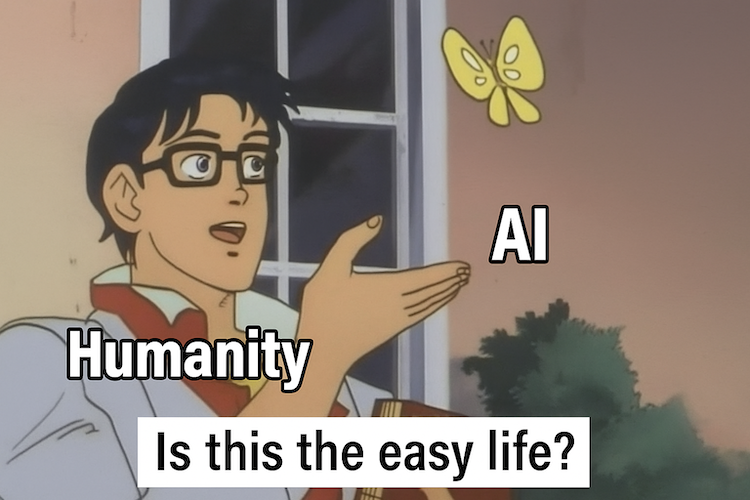A few years ago, while sitting on the patio of my mother’s house and talking to my brother, we came upon a question we could not answer. But our nephew, sitting nearby and on his phone, got it for us with a quick Google search. My response (in jest — but with a certain thoughtful seriousness based on my life philosophy) might have surprised him: “Why did you do that? We could’ve gone on talking for the next 10 minutes about this, and even then not come up with the answer, and that would have been fine with us.” As a matter of fact, it could very well lead to that satisfying “Aha!” moment later while driving home or sitting on the toilet.
But now? No. The answer was given to us without the hard work, and without the thought that we may never figure it out…and being perfectly fine with that.
That was life for us, my brother and me. Among the last generations to remember what it feels like not to know something. There is a certain freedom (and patience) that comes with that, and even to remember that bygone age is somewhat refreshing. There are certainly times when it’s crucial to know an answer, but there are those times when in the end, it just doesn’t matter. What we do get out of not knowing though is the sometimes wonderful conversations that spring from our ignorance. And again, the satisfaction in knowing that in the end, it just doesn’t matter.
Now we have AI. I use it often. Mostly in two ways: The first is as if I was communicating with an agency from which I need an explanation of how to proceed with an important life decision. So for example, I’m entering the realm of Social Security and Medicare for my wife and me. I can call around. I can send emails. I can go online and search for answers. But I can also do all of this by asking AI (and then checking with references for confirmation). It’s worked well for me. “What happens to my Social Security if I die? What does my wife get?” Knowing these answers really helps ease our minds, and to tell you the truth, having AI answer them for me does little damage to the overall quality of my life because it has simply done the hard work of navigating the morass for me. I’m not some college student whose mental capacity and maturity are more richly developed by digging around and thinking through life’s grand questions. I’m old. I have little time for that. So getting the facts about Social Security through AI does far more good than harm.
Similarly, I may ask AI for background on a puzzling passage in the Bible, especially from the perspective of the original languages and historical context of the time. There’s far too much out there for me to learn in those areas anymore, and I’d really recommend something like this if you need help along these lines.
The second way I use AI is to generate images for this blog. I’ve done it for quite some time, and I tell you, it’s getting better at it by a long shot. I’ll be doing it for this piece, as a matter of fact.
The one thing I want to steer clear of is having AI do my thinking for me. I was drafting an email at work the other day and I knew I had to be diplomatic. I didn’t want to tell someone in a position of authority that one of their policies was ill-advised, so I spent a lot of time crafting my words. When I mentioned being on a second draft to someone, they said, “Just run it through ChatGPT.” I hope you can see the line here. Suddenly I’m using AI to speak for me. I’m not doing the hard work of thinking carefully about what I want to say. I’m not developing (or using what I’ve learned in my long life to further develop) my mental acuity. I’m losing something if I ask AI to choose my words for me. I’m certainly getting lazy, and at my age, this is something I want to avoid.
I really think I come from one of the last generations to know the freedom of a life where the answers are not handed to us. I wish there was a way that young people (like my own grandchildren) could be taught to live that way. But I’m not optimistic. I know humanity is more inclined to dive into things and realize far too late that the things into which we dove weren’t actually very good for us in the end. Kind of like in our nutrition — where the food industry is processing their products so completely to satisfy taste (by creating a craving and more money) that it’s only now that we’re waking up to the correlation with obesity and chronic disease. The “easy” way (for us to prepare our foods in microwaves and for corporations to make their money off of us) is actually turning out to be killing us. And maybe the same can eventually be said about AI. We can use it to help us in our daily tasks, but when we let it do those things for us — to do our thinking for us — we could find the road back to our humanity far too difficult to recover.

Here’s a wonderful article that goes along with this piece. Read it, think about it, and maybe develop a thought or two from it:
